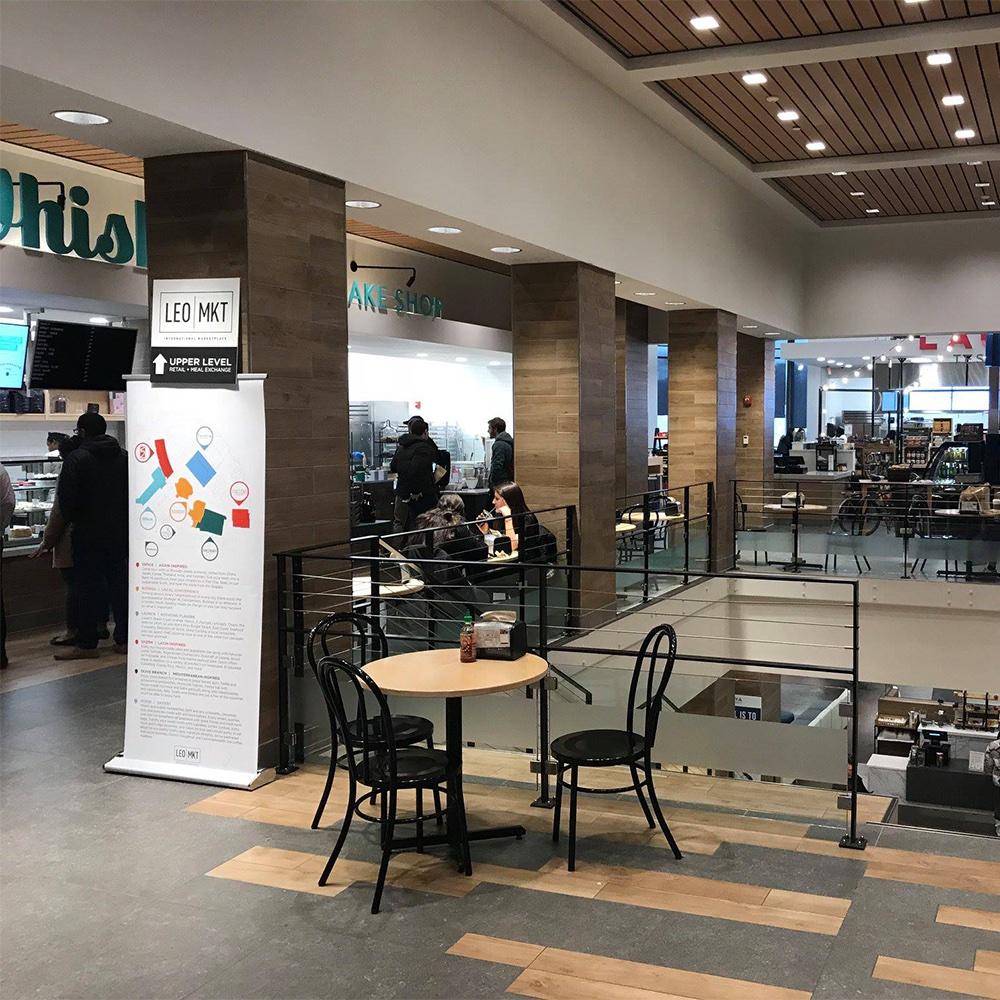Georgetown University administrators addressed student concerns related to public health conditions on campus at an Oct. 13 forum.
The virtual event featured Provost Robert Groves, Vice President and Chief Public Health Officer Ranit Mishori (MED ’02) and Vice Provost for Education Rohan Williamson. Panelists addressed student criticisms and questions concerning main campus public health conditions and protocols.
Georgetown has been successful in controlling the spread of COVID-19 on campus so far, according to Mishori.
“The positivity rate has been low,” Mishori said at the event. “Thank you to everybody, every single one of you, for doing what we recommend and adhering to the policies so that we can get such a low number of positive cases.”

The combination of high vaccination rates, masking protocols, and newly renovated heating, ventilation and air conditioning systems is the reason for the low number of COVID-19 cases on campus, according to Mishori.
All individuals, regardless of vaccination status, are required to wear a mask while inside campus buildings, except while eating, drinking or when inside private residences or offices. Georgetown is committed to COVID-19 safety procedures that match or exceed standards set by the Washington, D.C. Department of Health, according to Mishori.
Students raised concerns about public health conditions on campus last month after more than 145 campus community members presented symptoms consistent with norovirus and 65 campus community members tested positive for influenza A. Norovirus is a highly transmissible virus that causes nausea, vomiting and diarrhea. While it can be transmitted from person to person, it can also spread through contact with contaminated surfaces, food or water.
While norovirus cases are typical on college campuses, last month’s spike in symptoms was cause for concern, according to Mishori.
“We had a group of people and a spike, that’s what we call an outbreak, and we realized that there was something going on beyond the usual set of symptoms that present themselves on any college campus and any primary care clinic,” Mishori said.
After reports of gastrointestinal illnesses on campus, students expressed concerns over the possible contamination of food at university dining services. The norovirus outbreak was not related to any contamination or salmonella and has not been linked to any food source on campus, including Leo J. O’Donovan Dining Hall, according to Mishori.
“Our cases had nothing to do with salmonella. The D.C. Department of Public Health worked very closely with us. They did two inspections of Leo’s and other eating venues at the Leavey Center,” Mishori said. “I want you to know that there is zero evidence that Leo’s was the source of the infections.”
Panelists also addressed student concerns about illness absence protocols and accessibility issues after a Sept. 30 email sent by Williamson to campus community members stated that professors are not required to provide virtual attendance options for classes and that students should not expect to make up class work asynchronously.
While faculty must accommodate all COVID-19-related absences, they are allowed to do so in whatever manner they choose, according to Williamson.
“Faculty have been asked to accommodate all COVID-related absences, which is consistent with the university public health guidelines. How they do so, though, is up to the discretion of the faculty member,” Williamson said at the event. “Faculty are not required to allow students to attend remotely via Zoom, given that we’re in in-person instructional mode.”
Williamson said students should report faculty who do not follow these protocols, and that they should contact their advising dean if they are absent for more than one class meeting.
“If you think a faculty member is using a punitive model for students who miss class, just let us know with a description of the model being used so we can clear and address that behavior,” Williamson said.
Groves asked for patience during a difficult transition back to in-person operations.
“What I ask for all of us is that we have patience with one another as we go through an uncertain world and that we act with kindness, as befits our institution,” Groves said at the event.




















